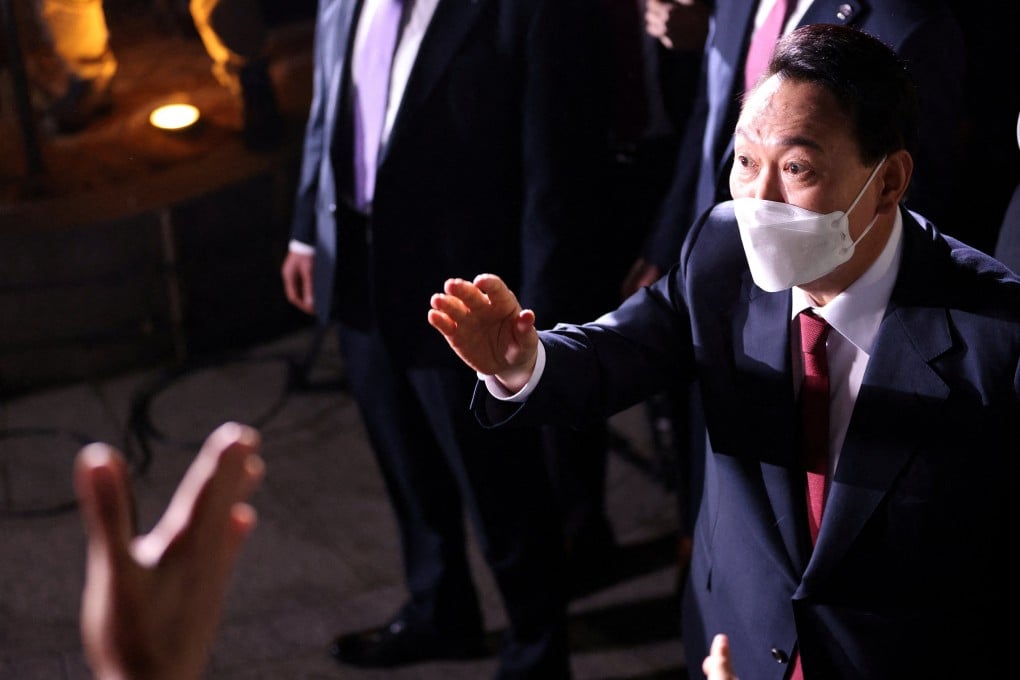South Korea’s new president Yoon Suk-yeol has talked tough on China. Now, he has to face the economic reality
- South Korean president-elect Yoon Suk-yeol has made it clear he plans to strengthen economic and security ties with Washington
- But the country’s dependence on China for trade will make it extremely difficult to turn away from its bigger neighbour, experts say

In particular, South Korean companies could profit from the economic priorities China revealed during its agenda setting parliamentary meetings earlier this month, including infrastructure investment, information technology and clean energy, according to a report published by the Korean International Trade Association (KITA) on Monday. South Korean firms should take advantage of the opportunities and expand their presence in the Chinese market, it added.
China has been South Korea’s largest trading partner for 17 consecutive years, snapping up 25 per cent of its total exports in 2021, helping push bilateral trade to a record US$362.3 billion, a 27 per cent jump from a year earlier.
The world’s No 2 economy is the main destination for South Korean integrated circuits, intermediate goods and petrochemicals.
A great deal of uncertainty will be brought to China-South Korea relations when Yoon comes into office